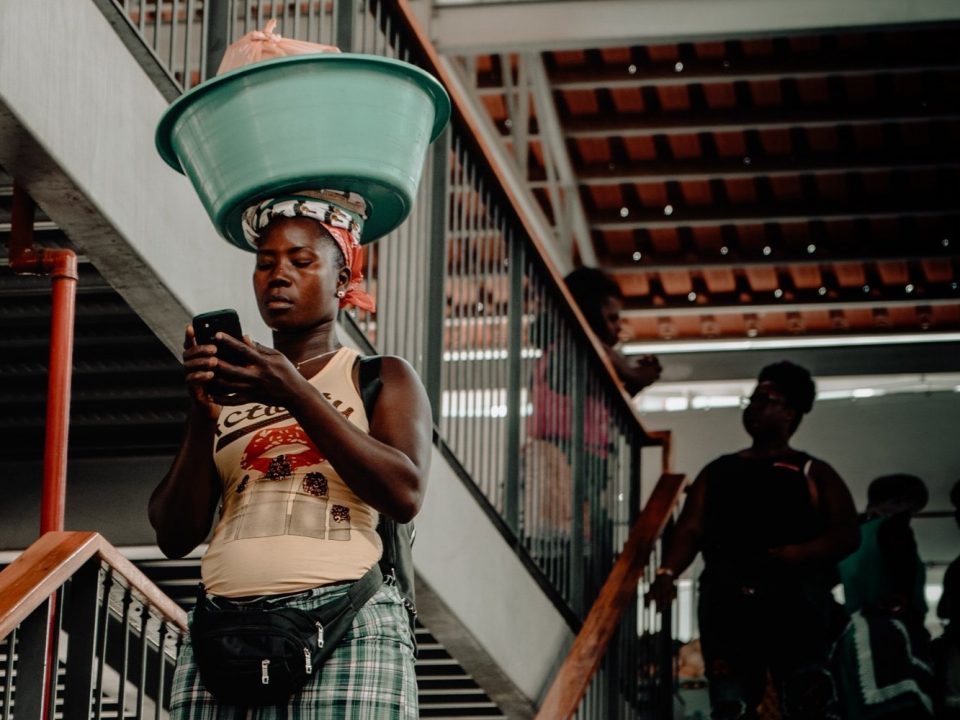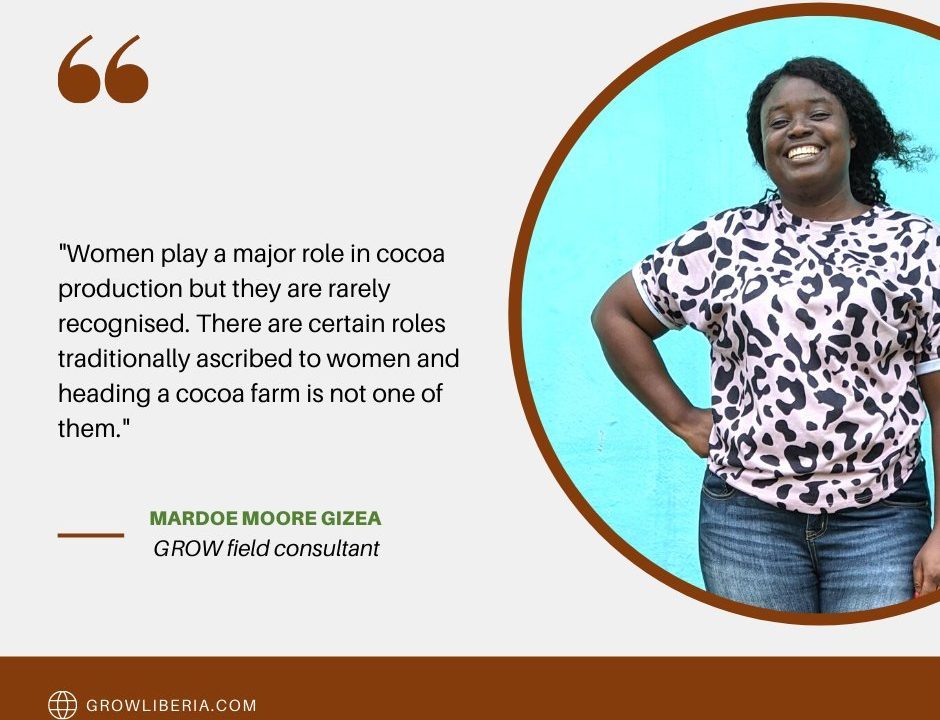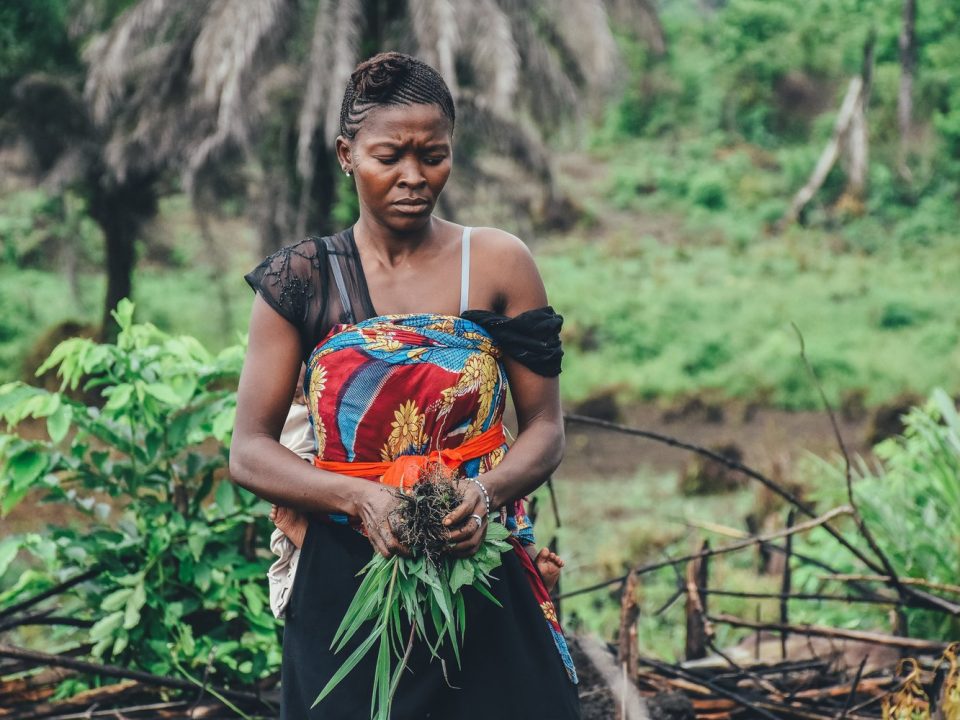
Inclusive Business Models Close the Gender Gap – To a Point
December 26, 2023
Organic ICS Manual
January 7, 2024Liberia’s female cocoa farmers may be the key to boosting the country’s position as a premium origin in demand
By Sabine Garbarino, Amelia Duggan & Kim Beevers
Premium cocoa markets offer a prime opportunity for Liberian farmers – particularly women – to increase income earned from cocoa. Three building blocks pave the way to premium markets: cocoa quality, traceability, and sustainability (often linked to certification), and a unique story that sets the product apart. At GROW Liberia, we have found that inclusive practices in cocoa production and trade is essential to the quality of cocoa beans and the sustainability of trade. Moreover, gender equality also provides a convincing narrative that, when substantiated, could differentiate Liberia as a cocoa origin and boost international demand for premium cocoa from Liberia.
Female farmers play essential—though not always visible—roles in cocoa farming. Women in cocoa are CEOs, accountants, managers, farmers and labourers. However, in line with the commonly simplified distinction that cash crops are “male crops” and subsistence crops are “female crops”, cocoa has broadly been considered a male occupation in West Africa. When data is collected, this assumption is easily challenged: women are in fact essential to the production and trade of cocoa. For example, research from West Africa has shown that men are able to intensify their cocoa farming and expand and upgrade as farmers because they rely on women to perform essential roles in cocoa production as well as to farm food crops and care for the household. In fact, in Côte d’Ivoire, women make up 68 percent of the cocoa farming workforce and yet earn just 21 percent of the income it generates. In Liberia, GROW’s gendered value chain analysis similarly found that female farmers are active—though not always visible—throughout the cocoa value chain. They prepare the land, harvest, crack the pods and ferment and dry the beans. There are few tasks that are undertaken by men alone while women are often solely responsible for time-intensive post-harvest activities that are essential to the quality of the cocoa beans – and thus critical to accessing premium markets.
Specific efforts to target women cocoa farmers are needed to include and support women to boost cocoa quality. Cocoa businesses (cooperatives, traders, exporters and farmers) know of the importance of female farmers for cocoa bean quality—in particular because of their essential roles in post-harvesting activities, such as breaking pods and drying and fermenting cocoa beans. It is also widely recognized that female farmers tend to have higher training needs than their male counterparts. Without specifically targeting women farmers, however, women are persistently underrepresented. For example, in early years GROW observed that only one in five participants in Good Agricultural Practice (GAP) trainings supported by GROW Liberia were female. When pressed, male participants frequently expressed that they did not consider it necessary for their wives to attend as well, as the husbands could pass along information. In fact, GROW’s research revealed that few men passed on the information gleaned from the trainings to family members, resulting in unequal access to information on the basis of gender and underperformance in terms of yield and quality.
Tailoring support services to female cocoa farmers translates into higher cocoa yields and increased income for farming families, making it a smart business strategy. Once GROW understood the barriers for women to access training, the programme responded by working with cooperatives to carefully adjust place and location of the trainings and actively communicate to all actors (including husbands) the importance of female participation. Responding to female farmers’ demands for same-sex trainers, GROW worked with cooperatives to specifically recruit women as Village Coordinators (VCs) and soon the number of female VCs increased from 1 to 303, which translated into 47% of all VCs. Cooperatives also added Gender Officers to their management structures, recognizing that female farmers are more effectively engaged by female cooperative representatives. Subsequently, female participation in GAP trainings rose. Moreover, GROW data showed that farming families where women were part of training efforts had 36% higher cocoa yields compared to households where female farmers were not trained.
Premium markets require traceability and transparency to reduce unethical working practices and discrimination against women farmers: Supply chain visibility and disclosure are key to premium market actors, owing to a significant increase in consumer demand for verifiable fairness and sustainability. Cocoa buyers who offer price premiums on top of global commodity prices need to be able to trace back the origin of the bean and be confident that unethical working practices and forced labour, including unfair wages, child labour or violence against women, do not damage their brand’s reputation. This is applicable across several premium market segments, from certified (e.g. Organic and Fairtrade) to higher quality and fine flavour. Price premiums can be accessed in a variety of ways, but traceability and transparency coupled with a demonstrable effort to improve fairness in profit distribution and human rights – including gender equality – is increasingly a pre-requisite (e.g. the upcoming EU due diligence legislation on agricultural commodities). GROW’s support to partners has reflected this commitment, and companies such as Monleh Enterprises and EJ Flomo Cocoa have committed to non-discrimination, gender equality and fostering women leaders. These efforts have elicited strong interest from international buyers in early premium market engagement with Liberia and, in Monleh’s case, paved the way to secure at least one supply contract in 2021.
Visible and valued female cocoa farmers offer nuance to Liberia’s unique cocoa story. We live in a world where consumers are increasingly aware of the social and environmental impact of products. Consumers reward companies that credibly demonstrate sustainable practices and positive social impact. In the US, between 2017 and 2018, Fairtrade chocolate sales grew twice as fast as ordinary chocolate. Companies celebrating the many roles of women in cocoa, such as Rokbar, have been set up with the purpose of addressing gender inequalities in the cocoa sector with chocolate, 100% made and owned by women. At the same time, chocolate makers in premium segments will pay higher prices based on the uniqueness of the product – and cocoa that substantially champions female farmers is especially unique. Connecting to premium and specialty markets enables not just growth (through price premiums), but truly inclusive growth. In the end, this reinforces efforts by cocoa businesses, GROW Liberia and others to ensure that women are seen, included and valued in Liberia.
Visible and confident female cocoa farmers, companies that employ women at fair wages, and companies that are led by women offer a powerful opportunity to establish a distinct and unparalleled story of social impact in Liberia.
About GROW Liberia
GROW is an agribusiness and investment advisory agency that partners with businesses, investors, associations and government agencies to accelerate inclusive economic returns within high-growth industries in Liberia.
About GROW Liberia
GROW Liberia is a market systems development program that collaborates with businesses, investors, associations, and government agencies to accelerate systemic solutions that transform high-potential industries and drive inclusive growth in Liberia. GROW currently invests in the cocoa and vegetables sectors. GROW is funded by Sida and implemented by ASI.
Learn more at www.growliberia.com
“As a female business owner, I try to encourage other women, especially young girls, to value their lives, do things for themselves and be able to send their children to school. This is why we’re looking for a good market. Once we get on that market I believe things will improve.“
– Rachel Mulbah, CEO Monleh Enterprises
Read the full interview here
Defining “premium” cocoa markets
The international cocoa and chocolate industry does not have a harmonised definition of “premium”. Reflecting common usage, GROW considers premium to be cocoa that contains special attributes that set it apart from the bulk market and are rewarded through price premiums paid above bulk market prices.
Learn more: Introduction to Premium Cocoa Markets in Europe and USA




